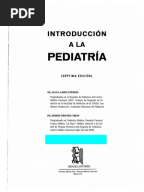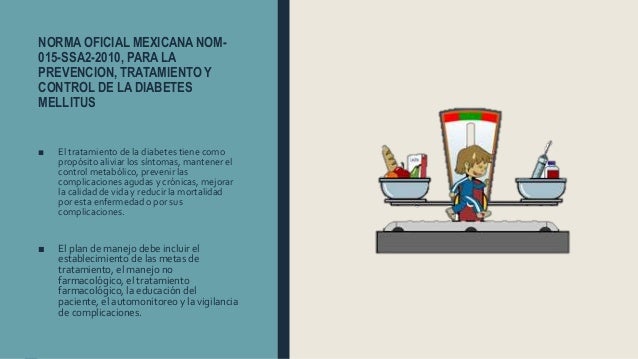Mellitus Diabetes 015
Diabetes Mellitus Definition Classification And Diagnosis
Treatment of type 1 diabetes requires daily insulin injections. the injected insulin makes up for the insulin that is not produced by the body. most people with type 1 diabetes need two to four injections per day. people with type 1 diabetes must properly regulate both their dietary intake and their dose of insulin. if a person takes too much insulin relative to their dietary intake, or if they forget to eat, they can develop dangerous hypoglycemia. if they take too little insulin, or eat too mellitus diabetes 015 The major sources of the glucose that circulates in the blood are through the absorption of ingested food in the gastrointestinal tract and formation of glucose by the liver from food substances. 1. diabetes mellitus is a group of metabolic diseases that occurs with increased levels of glucose in the blood. 2. diabetes mellitus most often results in defects in insulin secretion, insulin action, or even both.
Polypharmacy In Elderly Patients With Type 2 Diabetes
Diabetes Wikipedia
Doi: 10. 1007/s00592-015-0790-4 abstract aim patients meeting the following inclusion criteria were enrolled: diagnosis of type 2 diabetes mellitus, age ≥65 years, and receiving oral antidiabetic treatment. data concerning diabetes duration and complications, the medications the patients were taking, and the number of hypoglycemic events. The prognosis in people with diabetes varies. it depends on how well an individual modifies his or her risk of complications. if blood sugar is not well controlled, it can increase a person's risk of heart attack, stroke, and kidney disease, which can result in premature death. disability due to blindness, amputation, heart disease, stroke, and nerve damage may occur. some people with diabetes become dependent on dialysis treatments because of kidney failure. If diabetes mellitus is left untreated, several complications may arise from the disease. 1. hypoglycemia. hypoglycemia occurs when the blood glucose falls to less than 50 to 60 mg/dl because of too much insulin or oral hypoglycemic agents, too little food, or excessive physical activity. 2. diabetic ketoacidosis. dka is caused by an absence or markedly inadequate amounts of insulin and has three major features of hyperglycemia, dehydration and electrolyte loss, and acidosis. 3. hyperglycemic Type 1 diabetes currently is a lifelong disease. people with type 1 diabetes need regular checkups. they must carefully monitor their blood sugar levels every day. they must receive insulin treatment throughout life. a small number of people can become exceptions to this rule. some people with diabetes eventually require kidney transplants. a transplant of the pancreas, or of the insulin-producing cells from the pancreas (called \\"islets\\"), sometimes is performed at the same time. since the ne
Type 1 diabetes is always treated with insulin injections. in most cases, type 2 diabetes treatment begins with weight reduction through diet and exercise. a healthy diet for a person with diabetes is low in total calories, free of trans fats and nutritionally balanced, with abundant amounts of whole grains, fruits and vegetables, and monounsaturated fats. most people with type 2 diabetes need drug therapy to control blood sugar. however, it is possible to achieve normal blood sugar levels with Diabetes mellitus (dm), commonly known as diabetes, is a group of metabolic disorders characterized by a high blood sugar level over a prolonged period of time. symptoms often include frequent urination, increased thirst, and increased appetite. if left untreated, diabetes can cause many complications. Doi: 10. 1007/s00068-015-0561-5 abstract purpose: trauma patients with diabetes mellitus (dm) represent a unique population as the acute injury and the underlying disease may both cause hyperglycemia that leads to poor outcomes. we investigated how insulin-dependent dm (iddm) and noninsulin-dependent dm (niddm) impact mortality after serious. Type 1 diabetes is a disease in which the body does not make enough insulin to control blood sugar levels. type 1 diabetes was previously called insulin-dependent diabetes or juvenile diabetes. during digestion, food is broken down into basic components. carbohydrates are broken down into simple sugars, primarily glucose. glucose is a critically important source of energy for the body's cells. to provide energy to the cells, glucose needs to leave the blood and get inside the cells. insulin tra
Diabetes Wikipedia

Preeclampsia is diagnosed in women presenting with new onset hypertension accompanied by proteinuria or other signs of severe organ dysfunction in the second half of pregnancy. preeclampsia risk is increased 2to 4-fold among women with type 1 or type 2 diabetes. the limited number of pregnant women with preexisting diabetes and the difficulties associated with diagnosing preeclampsia in. Diabetes mellitus is a disease that prevents your body from properly using the energy from the food you eat. diabetes occurs in one of the following situations: the pancreas (an organ behind your stomach) produces little insulin or no insulin at all. What is type 1 diabetes mellitus? type 1 diabetes is a disease in which the body does not make enough insulin to control blood sugar levels. type 1 diabetes was previously called insulin-dependent diabetes or juvenile diabetes. during digestion, food is broken down into basic components. The exact cause of diabetes mellitus is actually unknown, yet there are factors that contribute to the development of the disease.
Diabetes Nom 015 By Prezi
See full list on drugs. com. Gestational diabetes mellitus is defined by new-onset glucose intolerance during pregnancy. about 2-5% of all pregnant women develop gestational diabetes during their pregnancies and the prevalence has increased considerably during the last decade. Nom 015 ssa diabetes mellitus 2ndo nivel de atención 1 cuando, de manera persistente, no se cumplan las metas de tratamiento a pesar del tratamiento farmacológico. 2 falta de respuesta a la combinación de hipoglucemiantes y si además se carece de experiencia en la utilización de.
Diabetesmellitus (dm) is a common comorbidity of chronic obstructive pulmonary disease (copd) []. a series of studies have shown that dm is associated with impaired lung function []. the chronic complications of diabetes include a number of pathological changes involving different districts and, among these, lung represents a target organ for diabetic microangiopathy in patients with diabetes []. Diet and exercise in most mellitus diabetes 015 cases, type 2 diabetes treatment begins with weight reduction through diet and exercise. a healthy diet for a person with diabetes is: 1. low in saturated fats and cholesterol 2. without any trans fats 3. low in total calories 4. nutritionally balanced with abundant amounts of: 1. whole-grain foods 2. monounsaturated oils 3. fruits and vegetables a daily multivitamin is recommended for most people with diabetes. for some people, type 2 diabetes can be controlled just
See full list on mellitus diabetes 015 nurseslabs. com. Diabetes is diagnosed by testing the blood for sugar levels. blood is tested in the morning after you have fasted overnight. typically, the body keeps blood sugar levels between 70 and 100 milligrams per deciliter (mg/dl), even after fasting. if a blood sugar level after fasting is greater than 125 mg/dl, diabetes is diagnosed. your doctor will examine you to look for: 1. obesity, especially abdominal obesity—a condition that greatly raises a person's risk for type 2 diabetes. 2. high blood pr

Diabetes mellitus comprises of a group of heterogeneous disorders, which have an increase in blood glucose concentrations in common. the current classifications for diabetes mellitus type 1–4 are described and the main features of type 1 and type 2 diabetes are compared to allow for better discrimination between these diabetes types. Always consult your healthcare provider to ensure the information displayed on this page applies to your personal circumstances. medical disclaimer. Appropriate management of lifestyle can effectively prevent the development of diabetes mellitus. 1. standard lifestyle recommendations, metformin, and placebo are given to people who are at high risk for type 2 diabetes. 2. the 16-lesson curriculum of the intensive program of lifestyle modifications focused on weight reduction of greater than 7% of initial body weight and physical activity of moderate intensity. 3. it also included behavior modification strategies that can help patients achi The chronic care model (ccm) uses a systematic approach to restructure health care systems. the aim of this systematic review was to examine studies that evaluated different elements of the ccm in patients with type 2 diabetes mellitus (t2dm) and to assess the influence of the ccm on different clinical outcomes. there view was performed in the medline and cochrane library electronic databases.
Comments
Post a Comment